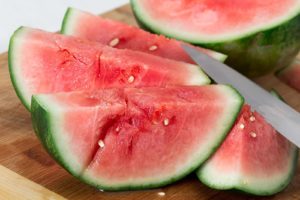- Cloud 9 Acupuncture & Integrative Medicine22 West Padonia Rd. Suite A-203
Timonium, MD 21093 - By Appointment Only
-
Latest Articles:
- • Add These 10 Immune-Boosting Foods to Your Fall Diet •
- • Keep Your Skin Healthy and Glowing with these Fall Skincare Tips •
- • Beat End of Year Burnout with these Fall Self-Care Rituals •
Stress
The Differences Between the Types of Headaches
Experiencing the pain of a headache can be immobilizing. This is especially true if you find yourself having regular headaches. Headache pain can cause light sensitivity, restlessness, and even nauseousness. Understanding the differences between each type of headache is crucial for determining the appropriate treatment.

Tension Headaches
When you feel a dull yet constant pain on both sides of your temples, you could be experiencing a tension headache. They cause facial tenderness and pressure behind the eyes. You may also feel sensitivity to light and sound. Tension headaches are the most common type and last from 30 minutes and up to several hours.
Cluster Headaches
Cluster headaches get their name from their frequent occurrence throughout a day. Someone who suffers from cluster headaches will experience severe pain up to eight times in one day. They are more likely to occur in women. Symptoms include intense burning behind the eye, a swollen eyelid, and a stuffed or runny nose.
Migraine Headaches
Of the types of headaches on this list, migraines are typically the most well known although not necessarily the most common. If you’re having a migraine, you’ll feel a throbbing pain on one side of your head. You may also feel nauseous, sensitivity to light and sound, and difficulty speaking. Some migraine attacks can last up to three days.
Exertion Headaches
If you’ve recently participated in some form of strenuous physical activity and then have throbbing pain, you are experiencing an exertion headache. They are usually triggered by running, jumping, lifting weights, and even coughing. Exertion headaches are generally short-lived, but they can last up to two days.
Sinus Headaches
People who have seasonal allergies may also have sinus headaches. They also happen as a result of sinus infections and swelling. Symptoms include a dull, throbbing pain around the eyes and forehead. These are one of the rarest types of headaches but are often accompanied by fever, nausea, and light and sound sensitivity.
Caffeine or Hangover Headaches
Did you know that what you drink can also contribute to headaches? Caffeine-related headaches are typically accompanied by tiredness, irritability, and difficulty concentrating. They can last for up to an hour. Hangover headaches happen as a result of consuming too much alcohol. The next morning, you may wake up to throbbing pain that mimics the feel of a migraine. The amount of caffeine or alcohol that contributes to these headaches varies.

Treating Headaches with Acupuncture
As it relates to traditional Chinese medicine, acupuncture is a practice that helps restore the whole body. When treating headaches, acupuncture balances the hormone regulators and endocrine system by relaxing our nervous system. During your session, acupuncture will release endorphins and other hormones that help relieve headache symptoms. If you regularly experience one of the types of headaches discussed, establishing a routine treatment plan will help to significantly reduce the frequency, duration and severity of the pain you receive from your headaches. Cloud 9 Acupuncture has a 90% success rate with treating the pain and discomfort associated with headaches.
How to Create a Self-Care Plan
What is a Self-Care Plan and Why You Should Create One
With a growing focus on mental health in the public sphere, you’ve likely encountered references to individuals creating a “self-care plan.” A self-care plan is a coping mechanism that keeps you from being overwhelmed by life’s sometimes chaotic nature. It’s also a proactive measure that you design. It’s filled with activities that bring you joy, reminders of your self-worth, as well as ways to tap into your support network. Below are three reasons why investing in a self-care plan ahead of time is essential:
1) A customized self-care plan is empowering. Take some time to look within first; you’ll know what things in life bring on stress and what things make it melt away. Through this self-reflection, you’ll have the foundations for developing your self-care plan and having it written down offers a safety net for the moments when you need it most.
2) Self-care plans help you respond, not react in moments of crisis. In terms of mindfulness, a self-care plan allows you to respond to situations versus simply reacting. Creating a plan ahead of time, therefore, empowers you to feel more in control of your life and avoid becoming overwhelmed by it. Likewise, you’ll be in a better position to know what type of outside help you might need and where to go for it.
3) Developing a plan helps keep you on track. A tangible, clearly laid-out strategy keeps you accountable and motivated to build new, positive routines. Knowing what you need to do when things get tough should also prevent you from making excuses and defaulting to old habits.

How to Create Your Self-Plan
Now that you better understand the importance of creating a self-care plan, it’s time to bring your own to life. Remember: this is a course of action that you take everywhere and seeks to balance your physical and emotional needs. The plan can also include resources that you can rely on and reminders about your personal goals.
Build your self-care plan by following these steps:
Step 1: Write down an activity list that shows the different components of your life. To get you started, here are a few example areas to focus on:
- Your day job
- Your relationships: romantic, platonic, family, community
- Your physical activity
- Your internal thoughts
When this list is complete, you’ll want to add activities that you enjoy, bring happiness, and wellbeing to each space in your life. Sample activities include downloading a meditation app for your phone, meal prepping, keeping a gratitude journal, working with a therapist, or scheduling recurring acupuncture sessions.
Step 2: Write down the things that might get in your way. Afterward, devote some time to figuring out potential ways to address these barriers positively. An example would be if you’re in the habit of negative self-talk, take 5 minutes each morning to write down 3 good things about yourself. Over time these “shifts” in thinking and action will build to even larger life changes and you being well-suited to handle future stressful situations.
Step 3: Share your plan with your support network. Once your self-care plan is complete, send a copy to the people you trust most and are willing to help keep you accountable. You may also want to encourage these individuals to develop their own and share them with you.
Sticking to Your Self-Care Plan
For your self-care plan to be successful, you’ll need to commit to regularly acting on it. We know this is easier said than done, but we encourage you to be empathetic towards yourself and give yourself time to build new habits. Yes, there’ll likely be times where you slip back into past responses; this is okay and natural. When these moments do arise, be kind to yourself and use it as a chance to refocus.
Here are a few ways you can set yourself up for success when implementing a self-care plan:
- Set daily reminders on your phone to do something that brings you joy
- Meet up regularly with your accountability partner
- Bring your plan to life through drawings, photo collages, or another visual medium
- Schedule recurring appointments that contribute to your well-being, such as acupuncture or gym workouts
- When you do falter, take a moment to reset with 5 deep breaths and visualizing your best self
- Reward yourself when you’ve stuck to a part of your plan for a certain number of days, weeks, months, etc.
3 AcuPoints for Anxiety

One of the most wonderful things about being an acupuncturist is the ability to stimulate points on my own body when I need to. If I get a headache, or feel a cold coming on, I can always hop up on my table for a quick tune-up with some needles. Even when I’m not at the office, the magic of acupuncture can still work for me – as long as I know where the points are and what they do, I can press on them and get results. continue reading
The One Hour Vacation
It’s time for a tune up!
In Chinese Medicine, we acknowledge that Summer brings the gifts of laughter, partnership, and joy. This is seen by our desire to vacation with loved ones, have fun and break loose, and have more get togethers with old and new friends. In Summer, our Heart, Pericardium, Small Intestine and San Jiao are at their peak of functioning and at their most vulnerable. If challenged, you may notice some issues with regulating your body temperature or fluids- hello edema! Swollen ankles, anyone? If this is an issue for you, you can add 2 handfuls of watermelon to your diet daily or try Job’s Tears… and don’t forget your regular acupuncture treatment.

Late Summer brings the gift of harvest time, all of our hard work is paying off and especially for farmers and gardeners we can see the ripe fruit and vegetables in abundance to eat. We get a feeling of “life is good and easy” because there is plenty of food and a general sense of putting our feet up to relax. The gifts of Late Summer are empathy, sympathy, mothering oneself/tending to oneself versus how we take care of others. There is a lot of digesting life, making life a part of us- the way we go on vacation to a new land, consume the culture, the food, the energy of a beautiful and interesting place as we try to take it back home with us as part of our new life experience. In Late Summer, our Stomach and Spleen are at their peak of functioning and at their most vulnerable. If this is a difficult time for your body, you may notice more loose stools or irregular digestion, stomach bloating or cramps, or gas. Try fresh mint in your diet, add to smoothies or salads, or as a cup of tea.

If you’re finding Summer or Late Summer a difficult time, emotional or physically, don’t suffer alone. It’s time for a tune up. Schedule your appointment with one of our wonderful acupuncturists, available in White Marsh or Timonium, Monday thru Saturday as early as 7am, as late as 7pm.
Acupuncture is the perfect one hour vacation, with benefit to your mind and body.

Seven Ways to Set and Achieve Your Goals

No matter what you’re trying to accomplish, setting goals is one way to help you get there. Often, when people have no goals, they lack motivation, focus and direction. Setting goals also provides a benchmark to determine whether or not you are succeeding. But how do you set goals if you’ve never done so before? Or what if you have set goals in the past, but you didn’t achieve them? Do you just give up and tell yourself that goal setting doesn’t work? That’s one option, but let’s put things into perspective. continue reading

